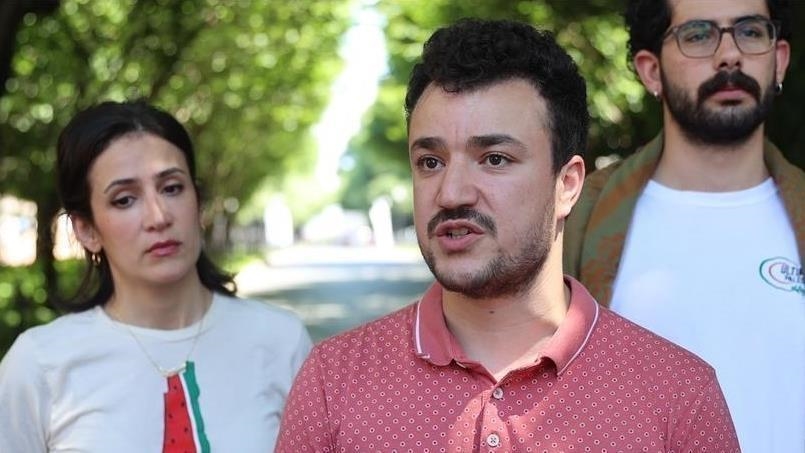Court denies Trump administration permission to appeal where Columbia student's hearing should be held
Mahmoud Khalil, detained for pro-Palestinian protests on campus, now being given opportunity for court hearing on legality of his detainment
 File Photo - Mahmoud Khalil
File Photo - Mahmoud Khalil
HOUSTON, United States
A federal court on Tuesday denied the Trump administration permission to appeal where a Columbia University student's due process hearing should take place in regards to his detainment for participating in pro-Palestinian protests on campus.
Mahmoud Khalil, 30, was taken into custody on March 8 by Immigration and Customs Enforcement (ICE) officers for his involvement in the campus rallies and was initially detained without the right to retain an attorney or have a court hearing.
In April, the US District Court for the District of New Jersey ruled that the northeastern US state was the proper venue for Khalil’s habeas petition, as he was detained there when the petition was filed.
The government argued that the venue for Khalil's hearing should be in Louisiana, as that is where ICE shipped him after unlawfully detaining him, and sought to appeal the district court’s ruling.
The Third Circuit Court of Appeals shut that door and announced that Khalil's case would continue in the District of New Jersey.
"It is the fundamental job of the judiciary to stand up to this kind of government manipulation of our basic rights," said Brett Max Kaufman, a senior counsel with the American Civil Liberties Union's Speech, Privacy, and Technology Project.
After the Trump administration and the Department of Homeland Security (DHS) illegally arrested and detained Khalil in direct retaliation for his advocacy for Palestinian rights at Columbia University in New York City, the DHS transferred him 1,400 miles (2,253 kilometers) away to a Louisiana detention facility, separating him from his family and legal counsel. Due to Khalil's lengthy detention away from his home state, he was forced to miss the birth of his first child.
The circuit court judges who issued the denial included Judges Stephanos Bibas, a Donald Trump appointee, Thomas Hardiman, a George W. Bush appointee, and Arianna Freeman, who was appointed by Joe Biden.
"We hope the court’s order sends a strong message to other courts around the country facing government attempts to shop for favorable jurisdictions by moving people detained on unconstitutional immigration charges around and making it difficult or impossible for their lawyers to know where to seek their immediate release," said Kaufman.








